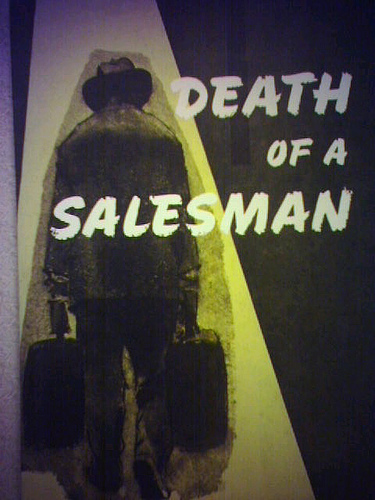
In his play, Broadway Bound, Neil Simon wisely said, "Wisdom doesn't come with age. Wisdom comes with wisdom."
With that caveat, as I approach my seventh decade, here is the wisest advice I can muster:
On career: If I haven't acquired wisdom in this area, I'm in trouble. I've been a career coach for 25 years. Here are some things I've learned:
¨ For most people, there is no one best-suited career. They could be equally happy and successful in many careers as long as it met their non-negotiables, for example: using your head vs. your hands, people-centric vs. isolated, employed vs. entrepreneurial, artistic vs. scientific, plus a decent boss, pay, commute, learning opportunities, and workplace ethics.
¨ It's wise to hire an inexperienced smart hard worker over an experienced person of average intelligence and drive.
¨ Procrastination is a career killer. Avoid those psychotherapist-concocted excuses for inaction, for example, "fear of failure," and "fear of rejection." Feel the fear and do it anyway; the fear will dissipate. And if you're lazy, recognize that you pay a price far greater than any benefits you derive--not only lack of success but ultimately feeling like a parasite on others, or at least having made far less of a difference to your family, community, and world than you could have or your peers have.
On money: Only fools chase money beyond a moderate income. After taxes, your quality of life's improvement is too small to justify what it often takes to get big bucks: a career you enjoy far less than a less remunerative one, inordinate stress, ethical compromises.
On friends: They're more important than family. Other than your spouse, you don't choose your family. You do choose your friends, so you're more likely to be compatible. I have seen so many family members cause each other misery. Compatible, close friends are a treasure. If you have such friendships, nurture them. If you don't, prioritize making one.
On marriage: A good marriage should get a passing grade on all these characteristics:
¨ enjoying each other in bed
¨ enjoying each other out of bed
¨ respecting each other deeply
¨ no fatal flaw in either of you (for example, chronic addiction or violence)
¨ that ineffable thing called love--in which you feel warm whenever you see the person, and you care as much about the other person's wellbeing as your own.
Of course, no marriage scores a permanent A on all those factors but if, for an extended time, your or your partner rate the marriage as a C or lower on two or more of those, you may be better off single or with another partner.
Few people fundamentally change and even fewer change because of another person's attempt to make them change. Sure, encourage tweaks but key to a good relationship is accepting each other for who they essentially are. If you can't, consider separating.
On sex: The key is to find a partner with a compatible sexual appetite and to communicate your desires to your partner, verbally if necessary.
On politics: Liberal ideals appeal to the hearts of all good people but fail to adequately consider how most humans behave: that handouts and other compensatory programs reward incompetence and laziness and thus encourage more of it while punishing the more worthy. Liberals, who ever expand government, fail to accept that the security of government jobs causes government services to be of low quality and to cost the taxpayer vastly more than they should. Also, liberals seem to care about everyone but the taxpayer, who usually gets terrible value received for the amount paid. Government must take much more seriously their responsibility to steward taxpayer money as though it was their own.
Conservatives fail to realize that people's failures are often beyond their control: the genes and environment bestowed by their parents. It is government's (as well as individuals') responsibility to help compensate those who lost in the genetic and environmental lottery. Conservatives also fail to acknowledge that unbridled capitalism does lead to excesses requiring regulation, although only a non-onerous and realistically enforceable level of regulation.
On faith: There is no God worth praying to. If there were, s/he wouldn't have allowed billions of people, including infants, to suffer weeks or months of horrific pain only to die of diseases such as cancer or AIDS, leaving bereft family members. "A loving God," hmmph.
The potential for holiness resides within each of us: the impulse to do good. We should keep that impulse top-of-mind.















